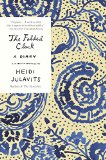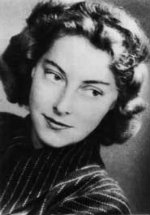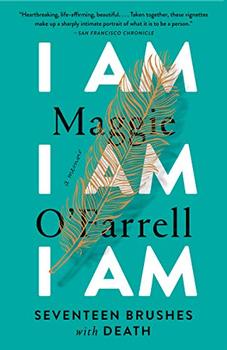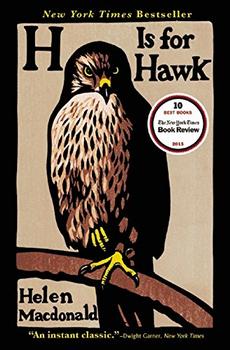Summary | Excerpt | Reviews | Beyond the book | Read-Alikes | Genres & Themes | Author Bio

A Diary
by Heidi JulavitsA raucous, stunningly candid, deliriously smart diary of two years in the life of the incomparable Heidi Julavits
Like many young people, Heidi Julavits kept a diary. Decades later she found her old diaries in a storage bin, and hoped to discover the early evidence of the person (and writer) she'd since become. Instead, "The actual diaries revealed me to possess the mind of a paranoid tax auditor." The entries are daily chronicles of anxieties about grades, looks, boys, and popularity. After reading the confessions of her past self, writes Julavits, "I want to good-naturedly laugh at this person. I want to but I can't. What she wanted then is scarcely different from what I want today."
Thus was born a desire to try again, to chronicle her daily life as a forty-something woman, wife, mother, and writer. The dazzling result is The Folded Clock, in which the diary form becomes a meditation on time and self, youth and aging, betrayal and loyalty, friendship and romance, faith and fate, marriage and family, desire and death, gossip and secrets, art and ambition. Concealed beneath the minute obsession with "dailiness" are sharply observed moments of cultural criticism and emotionally driven philosophical queries. In keeping with the spirit of a diary, the tone is confessional, sometimes shockingly so, as the focus shifts from the woman she wants to be to the woman she may have become.
Julavits's spirited sense of humor about her foibles and misadventures, combined with her ceaseless intelligence and curiosity, explode the typically confessional diary form. The Folded Clock is as playful as it is brilliant, a tour de force by one of the most gifted prose stylists in American letters.
Every entry in The Folded Clock starts with the word "Today," but this is not a diary of events and happenings: this is far more a journal of the mind. Each "Today" moment serves as a setting off point for Julavits' sharp wit, her observation and her unblinking consideration of themes. Heidi Julavits is first and foremost a writer: someone who talks about her craft and has composed and deliberately structured this diary in a non-linear form, yet there is an overarching sense of candor and honesty in The Folded Clock that makes it a memorable and admirable piece of work. Highly recommended...continued
Full Review
(694 words)
This review is available to non-members for a limited time. For full access,
become a member today.
(Reviewed by Kate Braithwaite).
In The Folded Clock, which is a curated selection of Julavits' journal entries over two years, she writes about reading diaries by Franz Kafka and Virginia Woolf. These are two giants of twentieth-century literature and thought, but Julavits also references other less well-known practitioners of the craft, including Marie Vassiltchikov (Berlin Diaries) and the Goncourt brothers.
 Marie Vassiltchikov was a Russian princess who emigrated with her parents to Germany as a young child. During World War II, Vassiltchikov, who was proficient in English, managed to find employment in the Information Department of the German Foreign Ministry. Her Berlin Diaries, 1940-1945, chronicle Vassiltchikov's daily life and experiences during the war. ...
Marie Vassiltchikov was a Russian princess who emigrated with her parents to Germany as a young child. During World War II, Vassiltchikov, who was proficient in English, managed to find employment in the Information Department of the German Foreign Ministry. Her Berlin Diaries, 1940-1945, chronicle Vassiltchikov's daily life and experiences during the war. ...
This "beyond the book" feature is available to non-members for a limited time. Join today for full access.

If you liked The Folded Clock, try these:

by Maggie O'Farrell
Published 2019
An extraordinary memoir - told entirely in near-death experiences - from one of Britain's best-selling novelists, for fans of Wild, When Breath Becomes Air, and The Year of Magical Thinking.

by Helen Macdonald
Published 2016
Winner of the 2015 BookBrowse Nonfiction Award
Obsession, madness, memory, myth, and history combine to achieve a distinctive blend of nature writing and memoir from an outstanding literary innovator.



A classic is a book that has never finished saying what it has to say
Click Here to find out who said this, as well as discovering other famous literary quotes!